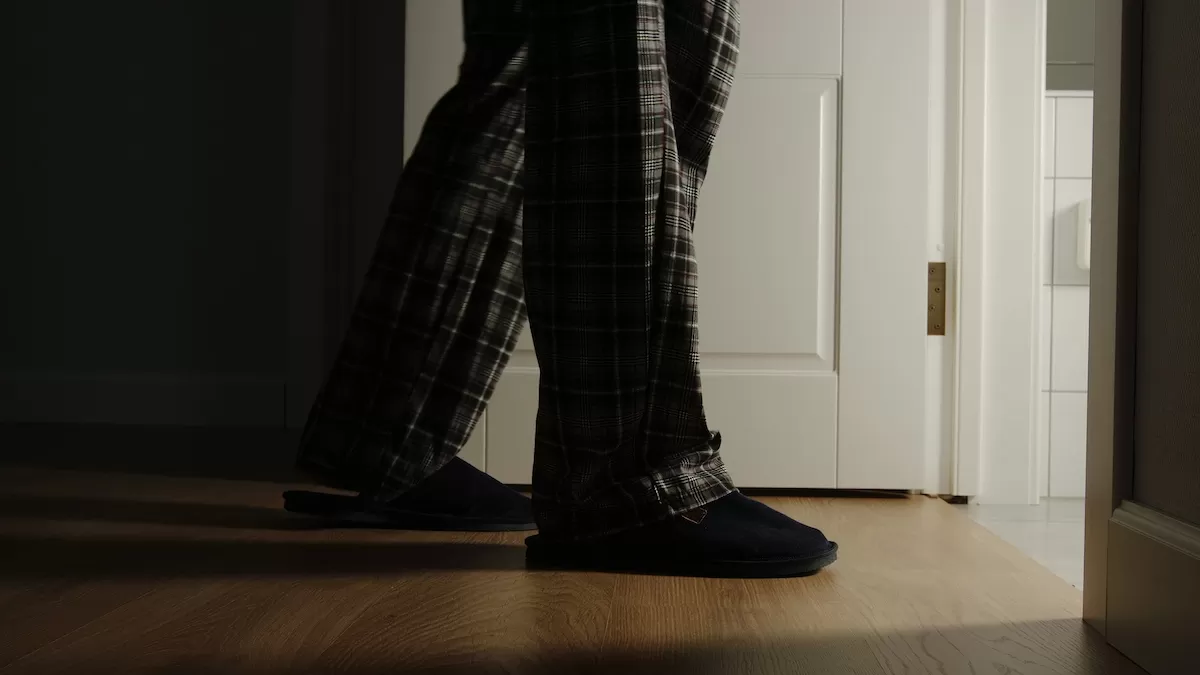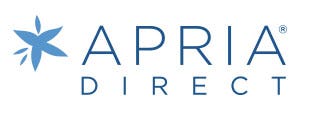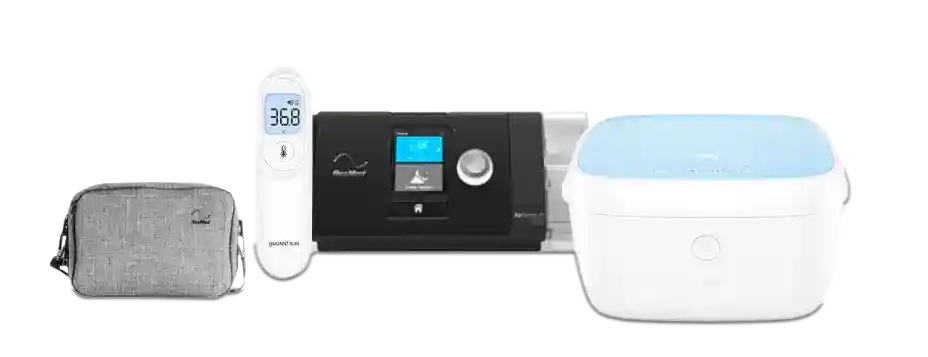Nocturia and Sleep Apnea: What You Need to Know

If you have trouble sleeping at night because you need to get up and urinate frequently, you may be suffering from nocturia. Nocturia is a condition that causes you to wake up more than once during the night to pee. It can affect your quality of life, your health, and your mood.
But what if you also have sleep apnea? Sleep apnea is a disorder that causes you to stop breathing for short periods while you sleep. It can lead to snoring, daytime sleepiness, headaches, and other problems. It can also increase your risk of nocturia.
In this article, we will explain how nocturia and sleep apnea are related, what causes them, how they can be diagnosed and treated, and what you can do to cope with them.
What causes Nocturia?
Nocturia and sleep apnea are two common sleep disorders that can affect millions of people around the world. They can have a negative impact on your health, your well-being, and your relationships. They can also make each other worse.
Nocturia is not just a normal part of aging. It can be caused by various factors, such as medical conditions, medications, lifestyle habits, or hormonal changes. It can also be a symptom of sleep apnea.
Sleep apnea is not just a nuisance. It can be a serious health risk that can increase your chances of developing cardiovascular diseases, diabetes, depression, or cognitive impairment. It can also trigger nocturia by disrupting your sleep cycle and affecting your fluid balance.
If you have both nocturia and sleep apnea, you may feel like you are trapped in a vicious cycle. You may have difficulty falling asleep or staying asleep because of your frequent urination. You may also have difficulty breathing or maintaining oxygen levels because of your obstructed airway. This can make you wake up more often and feel more tired and irritable during the day.
Fortunately, there are ways to break this cycle and improve your sleep quality and quantity. You can seek help from your doctor or a sleep specialist who can diagnose and treat your nocturia and sleep apnea. You can also make some changes in your lifestyle and habits that can reduce your symptoms and enhance your well-being.

Nocturia can be caused by a number of factors
What is nocturia?
A Nocturia definition includes the need to urinate at least twice during the night. It is different from enuresis, which is involuntary urination during sleep. Nocturia is a voluntary act that requires you to wake up and go to the bathroom.
Nocturia can affect people of any age, gender, or ethnicity. However, it is more common among older adults, especially women after menopause. Nocturia causes can include:
-
Urinary tract infections (UTIs)
-
Bladder problems, such as overactive bladder (OAB), interstitial cystitis (IC), or bladder cancer
-
Prostate problems, such as benign prostatic hyperplasia (BPH), prostatitis, or prostate cancer
-
Kidney problems, such as chronic kidney disease (CKD), kidney stones, or kidney failure
-
Diabetes mellitus or diabetes insipidus
-
Heart failure or edema
-
Liver cirrhosis or ascites
-
Medications, such as diuretics, antihypertensives, antidepressants, or antihistamines
-
Lifestyle habits, such as drinking too much fluid before bedtime, consuming caffeine or alcohol, or eating spicy or acidic foods
-
Hormonal changes, such as low estrogen in women or low testosterone in men
-
Sleep disorders, such as insomnia, restless legs syndrome (RLS), or sleep apnea
What is sleep apnea?
Sleep apnea is a disorder that causes you to stop breathing for 10 seconds or more while you sleep. This can happen hundreds of times per night and reduce your blood oxygen levels. There are three types of sleep apnea:
-
Obstructive sleep apnea (OSA): This is the most common type of sleep apnea. It occurs when your throat muscles relax and block your airway during sleep. This can cause loud snoring, gasping, choking, or coughing sounds.
-
Central sleep apnea (CSA): This is a less common type of sleep apnea. It occurs when your brain fails to send signals to your breathing muscles during sleep. This can cause silent pauses in breathing or shallow breathing.
-
Complex sleep apnea syndrome (CSAS): This is a rare type of sleep apnea. It occurs when you have both OSA and CSA.
How are nocturia and sleep apnea related?
Nocturia and sleep apnea are related in several ways. They can both affect your sleep quality and quantity. They can also influence each other and make each other worse.
Here are some of the ways that nocturia and sleep apnea are connected:
1. Sleep apnea can cause nocturia by disrupting your sleep cycle and affecting your fluid balance. When you stop breathing during sleep, your body senses a drop in oxygen and a rise in carbon dioxide. This triggers a response from your nervous system and your hormones to increase your blood pressure and heart rate. This also stimulates your kidneys to produce more urine to get rid of the excess fluid and waste. This can make you wake up more often to pee during the night.
2. Nocturia can cause sleep apnea by reducing your bladder capacity and increasing your urine production. When you wake up to pee during the night, you interrupt your natural sleep cycle and reduce the amount of deep sleep you get. This can affect your hormone levels and your fluid balance. This can also make your bladder more sensitive and less able to hold urine. This can make you produce more urine and need to pee more often during the night.
3. Sleep apnea and nocturia can both increase your risk of other health problems. They can both cause chronic sleep deprivation, which can impair your immune system, your metabolism, your memory, your mood, and your cognitive function. They can also increase your risk of cardiovascular diseases, such as hypertension, arrhythmias, heart attack, or stroke. They can also worsen other medical conditions, such as diabetes, kidney disease, or depression.
How can nocturia be diagnosed?
If you suspect that you have nocturia or sleep apnea, you should consult with your doctor or a sleep specialist who can diagnose and treat your condition. They may ask you about your symptoms, your medical history, your medications, and your lifestyle habits. They may also perform some tests to confirm your diagnosis and rule out other causes.
Some of the tests that may be used to diagnose nocturia include:
-
Urinalysis: This is a test that checks for signs of infection, inflammation, blood, sugar, or protein in your urine.
-
Urine culture: This is a test that identifies the type of bacteria that may be causing a urinary tract infection.
-
Bladder scan: This is a test that uses ultrasound waves to measure how much urine is left in your bladder after you pee.
-
Uroflowmetry: This is a test that measures how fast and how much urine you pass when you pee.
-
Cystometry: This is a test that measures how much pressure is in your bladder when it fills and empties.
-
Urethral pressure profilometry: This is a test that measures how much pressure is in your urethra when it opens and closes.
-
Cystoscopy: This is a test that uses a thin tube with a camera to look inside your bladder and urethra for any abnormalities.
-
Urodynamics: This is a test that combines several of the above tests to evaluate how well your bladder and urethra function.
Nocturia treatment
Nocturia can be effectively treated through a combination of lifestyle modifications and medical interventions. Lifestyle changes often include managing fluid intake in the evening, avoiding caffeine and alcohol before bedtime, and practicing bladder training exercises. Weight management can also play a significant role in reducing nocturia episodes. On the medical front, treatment options range from medications designed to decrease nighttime urine production to addressing underlying conditions like sleep apnea. Continuous Positive Airway Pressure (CPAP) therapy is frequently recommended for sleep apnea sufferers, as its successful management can lead to a reduction in nocturia episodes. Consulting with a healthcare provider is crucial to determine the most suitable treatment plan tailored to individual needs, ensuring better sleep and an improved quality of life.
Understanding the intricate relationship between sleep apnea and nocturia is crucial for managing these conditions effectively. By making lifestyle modifications, seeking appropriate medical interventions, and addressing the underlying causes, you can significantly improve your quality of life. Remember that a comprehensive approach that addresses both conditions simultaneously is key to achieving better sleep and fewer nocturia episodes.
FAQs
Q: Can sleep apnea cause nocturia?
Yes, sleep apnea can contribute to nocturia by increasing nighttime awakenings. When sleep apnea is treated effectively, it often results in reduced nocturia episodes.
Q: Are there any natural remedies for nocturia?
Several natural remedies, such as reducing evening fluid intake, bladder training, and pelvic floor exercises, can help manage nocturia symptoms.
Q: Can weight loss improve both conditions?
Weight loss can have a significant impact on both sleep apnea and nocturia. Shedding excess weight often leads to improvements in symptoms.
Q: Are there any specific dietary changes that can help?
Avoiding caffeine and alcohol before bedtime, as well as reducing spicy or acidic foods in your diet, can help minimize nocturia episodes.
As a leading supplier of durable and home medical equipment (DME and HME), ApriaDirect sources and distributes a wide range of treatment solutions, including assistive CPAP equipment and sleep monitoring solutions.
We're here to support you as you work toward your improved health and well-being. We strive to meet your ever-evolving healthcare requirements with individualized attention and premium quality treatment solutions.
Looking to add CPAP supplies? Browse our premium solutions and let us help you get the most out of every day.
Looking for advice? Our helpful agents are on call at (800) 780-1508 between 8:00 am - 10:00 pm EST daily. Get in touch today.
LEGAL DISCLAIMER: Material in this newsletter is only 1) provided for general health education and informational purposes, and to provide references to other resources; it may not apply to you as an individual. While Apria believes that the information provided through this communication is accurate and reliable, Apria cannot and does not make any such guarantee. It is not intended to be a replacement for professional medical advice, evaluation, diagnosis, services or treatment (collectively, "medical treatment"). Please see your healthcare provider for medical treatment related to you and your specific health condition(s). Never disregard medical advice or delay seeking medical care because of something you have read on or accessed through this website. Reading this newsletter should not be construed to mean that you have a healthcare provider/patient relationship with Apria.






